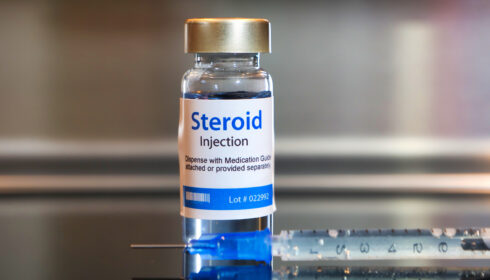REDUCE
Short-term vs Conventional Glucocorticoid Therapy in Acute Exacerbations of Chronic Obstructive Pulmonary Disease The REDUCE Randomized Clinical Trial
JD Leuppi. JAMA 2013; 309(21): 2223-2231. doi:10.1001/jama.2013.5023
Clinical Question
- Is short-term (5 days) systemic glucocorticoid treatment in patients with COPD exacerbation as good as conventional (14 days) treatment in clinical outcome and does it decrease the overall exposure to steroids?
Design
- Randomised
- Multi-centre
- Placebo-controlled
- Double-blind
- Non-inferiority
Setting
- 5 teaching hospital Emergency Departments in Switzerland
- March 2006 to February 2011
Population
- Inclusion
- Exacerbation of COPD as defined as 2 of the following
- Change in baseline dyspnoea
- Cough
- Change in sputum quantity or purulence
- Age over 40
- Smoking history of 20 pack years or more
- Exacerbation of COPD as defined as 2 of the following
- Exclusion
- History of asthma
- FEV1:FVC ratio > 70% (evaluated by bedside post bronchodilator spirometry prior to randomisation)
- Radiological diagnosis of pneumonia
- Estimated survival of less than 6 months due to severe co-morbidities
- Pregnancy or lactation
- Inability to give written consent
- ++ already on steroids not an exclusion
- 717 patients assessed, 314 randomised
- 15% absolute difference defined as threshold for non-inferiority
Intervention
- 40mg of intravenous methylprednisolone on day 1
- 40mg of oral prednisolone from day 2 to day 5.
- Placebo day 6 to 14
Control
- 40mg of intravenous methylprednisolone on day 1
- 40mg of oral prednisolone from day 2 to day 14.
All patients in both group also received a 7 day course of broad-spectrum antibiotics as well as standard nebulised and inhaled bronchodilators plus inhaled glucocorticoids
Outcome
- Primary outcome: No significant difference in exacerbation rates during the 6 month follow up period
- 35.9% in 5-day group vs 36.8% in the 14-day group
- Secondary outcomes: No significant difference in:
- All cause mortality
- Clinical outcomes (dyspnoea questionnaire)
- Change in FEV1
- Need for mechanical ventilation (intubation or non-invasive ventilation)
- Subjective outcomes
- Patient reported overall performance
- Clinical performance
- Complications of steroids
- Glucocorticoid-associated adverse effects
- Hyperglycaemia
- Hypertension
- Newly diagnosed infection
- Other potential glucocorticoid-related adverse events
- Significant reduction in mean cumulative corticosteroid dose in intervention group (379mg vs 793mg)
Authors’ Conclusions
- In patients presenting to the emergency department with acute exacerbations of COPD, 5-day treatment with systemic glucocorticoids was non-inferior to 14-day treatment with regard to re-exacerbation within 6 months of follow-up but significantly reduced glucocorticoid exposure. These findings support the use of a 5-day glucocorticoid treatment in acute exacerbations of COPD.
Strengths
- Study population reflective of the type of patient we see
- Randomised, blinded, placebo-controlled
- Explanation for use of intravenous methylprednisolone provided (to facilitate administration of glucocorticoids to patients in distress)
Weaknesses
- Non inferiority trial – not powered to detect difference in treatment groups
- Standard treatment (including antibiotics) for all COPD patients regardless of infective cause or degree of COPD severity (although trial population had higher rate of severe/very severe spectrum of COPD).
- Only followed up for 6 months
- 40 mg methylprednisolone is equivalent to 50mg prednisolone but further titration would have proved difficult
The Bottom Line
- It has always been my practice to prescribe short courses of steroids in COPD exacerbations and this study reinforces it.
External Links
- [open access pdf of article] The REDUCE Randomized Clinical Trial
- [Editorial] Sin. Steroids for Treatment of COPD Exacerbations. Less is clearly more
Metadata
Summary author: @avkwong
Summary date: 12th August 2014
Peer-review editor: @stevemathieu75




